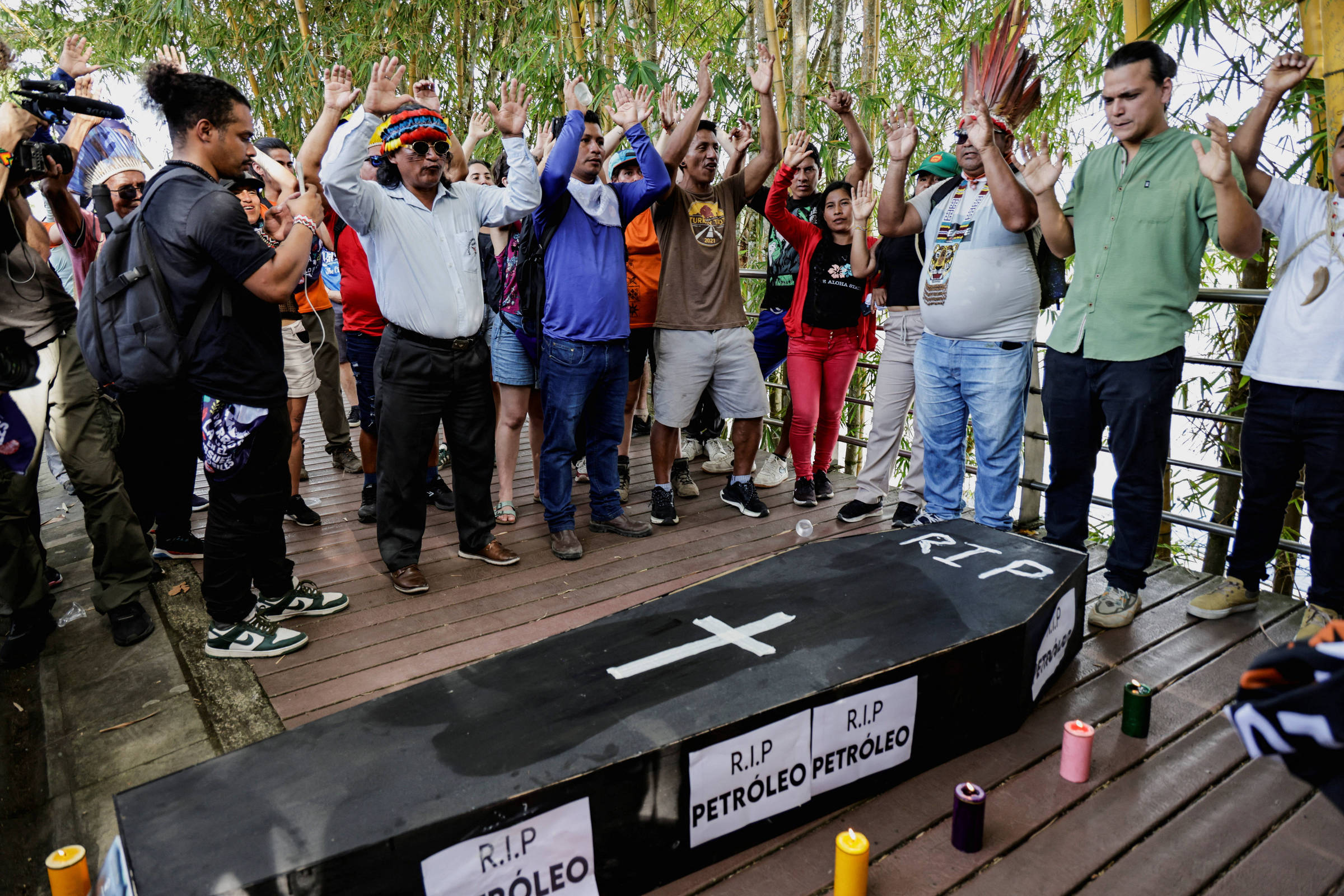
Giant coffins, people dressed as animals and “activist snakes” will be part of a march organized by civil society organizations in Belem this Saturday (15th) in parallel to the United Nations climate change conference COP30.
The traditional people’s march was revived at the climate change conference, which had been banned in the previous three host countries due to authoritarian regimes. The latest editions were held in Egypt (COP27), the United Arab Emirates (COP28) and Azerbaijan (COP29).
The event will bring artists and activists to the streets of Belem to advocate for the elimination of fossil fuels, a just energy transition, and direct financing for traditional communities.
In Belém, the event will focus on the San Blas market starting at 8am before heading to Parque da Cidade, where COP30 is being held. This route includes the Jose Bonifacio, Duque de Caxias, Lomas Valentinas and Aldeia Amazonica roads.
One of the most daring artistic interventions is a fossil fuel “funeral” organized by an international NGO and artists from UFPA (Federal University of Pará). For Lina Torres, an activist and one of the organizers of the effort, the goal is to raise awareness through art.
In the demonstration, about 150 performers will represent a wake with a giant coffin, hinting at a new era without consuming fossil fuels.
“The aim of this action is to make political leaders and influential representatives at COP30 aware of the need to end the fossil fuel era,” he said.
“Even if COP negotiators cannot imagine this, we believe that art can help paint a picture of this future,” he added.
More than 100 civil society organizations are expected to take part in the march.
Social movement Amazonia de Paix brings “activist snakes” to the streets. The 30-metre-tall fable is engraved with the phrase “direct financing for forest defenders” as a message to negotiators from each country.
“One of the ways we articulate our message is through culture, by involving people and showing world leaders what we can do as a civil society,” said Indigenous Leila Bolari, Cultural Expression Coordinator at Amazonia de Paix.
“After three years of holding in countries with many restrictions on demonstrations, COP30 in Brazil managed to mobilize thousands of people into the streets,” he stressed.
This Friday, young climate change activists revived the global movement Fridays for Future in the host city of the United Nations climate conference, which is no longer held in authoritarian countries during the COP.
In Belem, they called for participation in official negotiations. This mobilization took place in parallel in Germany, Sweden, Italy, Spain, the United States, Mexico, the Philippines, Japan, and the Republic of the Congo.
The movement was founded and popularized by Swedish activist Greta Thunberg. She became internationally known for her lone protest movement in Stockholm, where she stopped going to school every Friday to demonstrate. The student strike has since united millions of people to take action against climate change.



